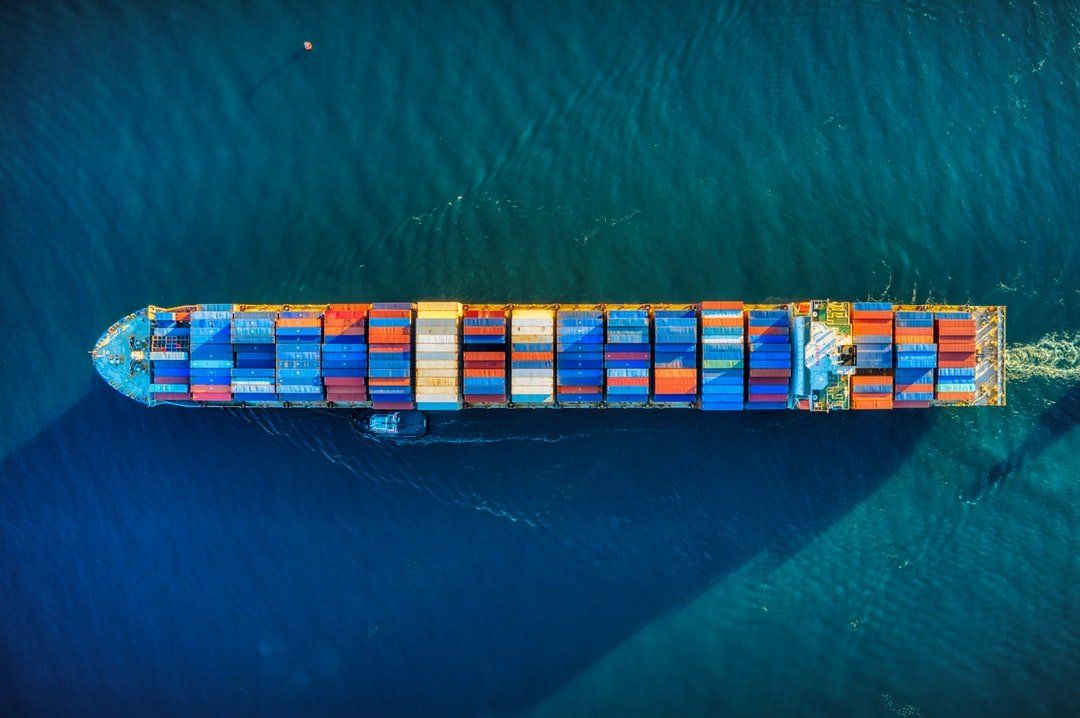HMRC publish Customs Information Paper (CIP) 1 – Goods arriving in GB without an import declaration
BY:
Gail Leeson
9 July 2021
SHARE:

If, as a UK business you have received goods from EU suppliers or returns from EU customers with no supporting paperwork to assist with the cross-border compliance requirements, now is a good time to review these arrivals to ensure they are declared correctly to HMRC.
The last thing you need is a fine or penalty for not being aware something was your responsibility to sort out, and sadly under customs regulations it is always the importer’s responsibility, not the sender or carrier of goods, to ensure things are done compliantly.
Some media information may have confused UK businesses. Though the EU and UK have a Trade Cooperation Agreement (TCA) this does not mean that trade goes on as it did before the beginning of 2021. In fact, to use the TCA effectively and compliantly, more compliance evidence is necessary, not less than was needed before the end of 2020.
What has happened:
1st January 2021 HMRC introduced import easements also called “delayed declarations” which meant that a haulier or carrier could simply drive through a UK port to make a UK delivery without making a customs declaration. This scheme for UK Import Easements was originally published in the Border Operating Model (BOM) and though it was due to end 30th June 2021 was extended beyond the original BOM published dates and will be available until 31st December 2021. On the plus side, this has enabled non-controlled goods to cross into the UK without any import formalities and has maintained, for many, the same speedy deliveries we had from EU companies while the UK was a member of the Customs Union. In practice, a haulier only needs minimal information to bring non-controlled goods into the UK; mainly evidence of a UK trader’s GB EORI number. But there are some caveats to this easement that could easily be missed by a company unused to importing processes or one that assumes their EU supplier or haulier is going to sort it all out.
The “delayed declaration” scheme can only be used if:
1. The UK company has a GB EORI and is aware of the delivery
2. The importing company has a UK Deferment Account (or one in place by the time the full declaration is submitted)
3. At the time of arrival all import details are recorded by the importing company into their own records (known as transitional EIDR – entry into declarant’s records) to enable a full declaration to be submitted at a later date, no later than 175 days of goods arrival in the UK
4. VAT is calculated by the importer and included on the relevant quarterly VAT return linked to the date of physical arrival.
5. A full customs declaration and payment of import duty will be made no later than175 days of the goods arrival.
The first batch of full declarations relating to the first arrival of goods from the EU early January 2021 was due 25th June 2021 on a rolling 175-day procedures. But it appears that some UK companies are not arranging for the full declarations because they were not aware that the arrival was under this delayed declaration scheme. HMRC are concerned about this as it is an offence to import goods without a customs entry being subject and the relevant import duty being paid. The HMRC CIP1 issued 6th July 2021 is to prompt businesses to check what has been received from the EU to ensure an import customs declaration is made.
For those companies that have established experience of importing and robust compliance processes, an unsolicited delivery from an EU supplier should be traced quickly through commercial records, to enable a customs declaration to be made in good time.
For a UK business with no experience of importing, this could be an issue that may not surface until a future HMRC or VAT audit
Therefore, this would be a good time to establish whether any of your deliveries of goods imported from the EU have had the appropriate customs declaration made and that any applicable duty or VAT has been appropriately provisioned.
A few thoughts to alert a business to a potential lack of compliance:
1. Deliveries from the EU have required import declarations into the UK since January 1st, 2021, but not necessarily at the time the goods crossed the border.
2. A UK business is responsible for import declarations on goods they have received unless they know that the sender has been able to complete the import formalities. Which would require an EU company to have a GB EORI and be able to pay/account for import VAT.
3. An Incoterms ® Rules used on a purchase order may indicate whether the UK business is responsible for import formalities. Only a DDP (Delivered at Place) term could make the supplier responsible for the import procedures, and even then, you must check they are able to fulfil this obligation
4. So, though a UK business may not have control of the physical movement and delivery of the goods they will generally still be responsible for import formalities, the payment of duties and VAT.
Those persons responsible in a UK business for procuring EU supplied goods may not be aware that deliveries from the EU have needed import declarations into the UK, and that the business is responsible for that import evidence being on file for audit. But import customs entries are not just needed for purchased goods, they are required for all arrivals, even, for example, goods being sent back to you after demonstration or for the purpose of repair.
It is a legal obligation to declare goods at import and it is an offence not to. And, as we said above, HMRC default position is that this is the legal obligation of the UK company in receipt of the goods. This is still the case even when the UK business does not select, pay or control the haulier or the delivery.
Top Tips
• If your business has received goods delivered from an EU member state at anytime from the beginning of 2021, investigate how the goods crossed the border and consider your regulatory obligations. The Customs Information Paper explains the next steps from an HMRC point of order.
• Compare the order book against goods that have been delivered.
• Compare your goods inward records to see what has physically arrived from the EU
• Check if there is someone in your business who instructs freight companies to complete import customs declarations and check if all physical arrives have the corresponding paperwork
• Consider registration for the monthly MSS Reports (HMRC Management Support System). The reports represent an invaluable source of information from HMRC of all recorded imports and exports made against a UK business’s GB EORI. There are 2 standard reports available, one for imports the second for exports: each report is £240. These reports can represent a substantial data source for compliance evidence if used as part of a UK trader’s compliance processes. This will help you check physical arrivals against imports that have been declared to HMRC as only imports that have been declared will appear on this report. The ones not showing are the ones to investigate. Registering for the reporting period from 1st January 2021 should capture all imports made against a GB EORI.
Next Steps
If you are continuing to trade with the EU and other overseas markets, ensure you understand how to implement a robust compliance procedure that connects the company’s buying process with the “Goods In procedures” as well as your obligations to HMRC as an importer. Good internal communication can only be a good thing.
Even if you were unaware of the arrival and made no provisions to record the details in your records, this inadvertent non-compliance is serious and could lead to civil penalties or prosecution of UK companies.
While you are here you may be interested in some Strong & Herd LLP training courses related to this
topic, we offer a wide range of high quality training courses to support all importing and exporting activities.
International Trade Up-dates into your inbox twice a month
Would you like to keep up to date on customs and international trade issues – subscribe to our OneCall service which combines regular practical updates (Did You Know?) and a helpline support service as well as an interactive members' area with a members' only community. View OneCall Packages
Spotlight & Training Updates Newsletter
Subscribe
to our free information emails covering international trade topics ....
OneCall™ Email assistance as and when required; A one-call solution for all your import, export and customs enquiries. Export help. Import help. Customs help.
Stay informed about customs and international trade matters by subscribing to our OneCall™ service. This comprehensive offering includes a dedicated email helpline for support, timely practical updates direct to your inbox (Did You Know?), monthly UK Customs & Trade Briefings and access to an interactive members' area with an exclusive community for our subscribers.
International Trade Updates & Spotlight Newsletter
Subscribe to our free information emails covering international trade topics...









